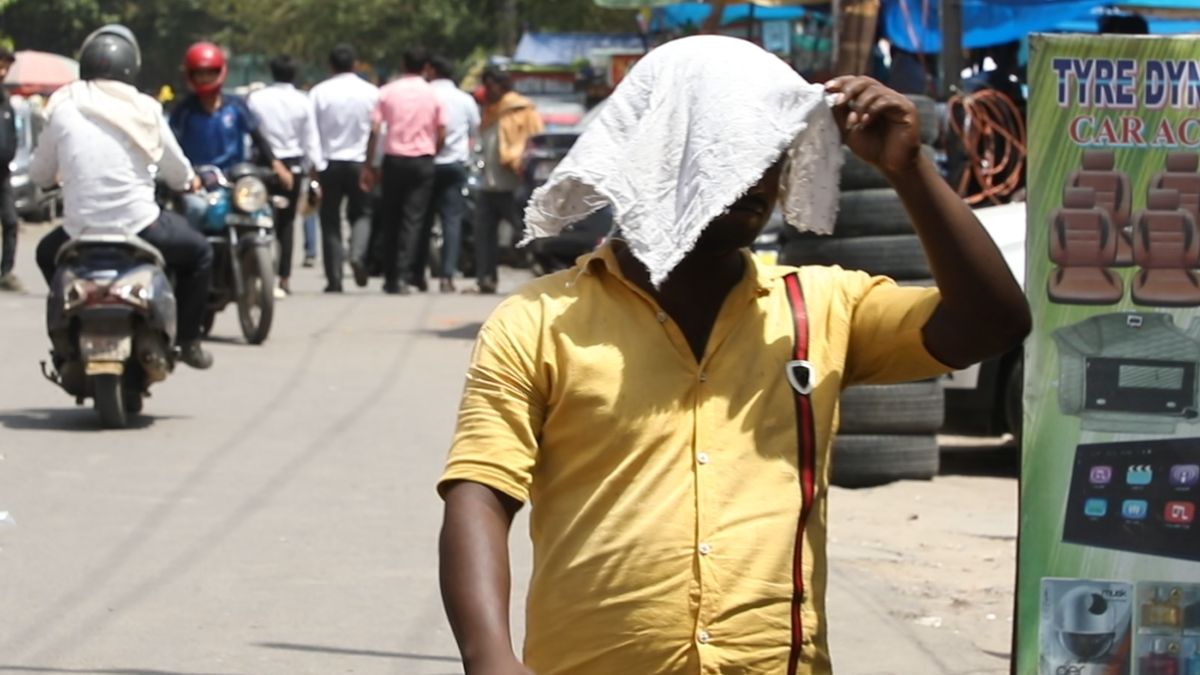
A tragic incident occurred in Delhi’s Ram Manohar Lohia (RML) Hospital where a 40-year-old man succumbed to heat stroke. Originally from Darbhanga, Bihar, he worked in a factory producing pipeline fittings. He was brought to the hospital by his roommate and fellow factory workers shortly after midnight on Monday.
Table of Content:-
Doctors reported that his body temperature had spiked above 107 degrees Fahrenheit. The man was living in a room without a cooler or fan, leading to a dangerously high fever, as the mercury touched 52.3° C in the national capital region, the highest in 79 years.
This incident underscores the severe health risks posed by extreme temperatures, highlighting the need for necessary precautions and recognising early signs of heat-related illnesses. To understand the same, the Onlymyhealth team spoke to Dr Tushau Prasad, Emergency Physician, Wockhardt Hospitals, Mira Road.

Health Risks Of Extreme Heat
Extreme heat can lead to a heat stroke which is a severe heat-related illness that occurs when the body’s temperature regulation system fails, resulting in an inability to cool down effectively. Heat stroke is a serious condition that requires immediate medical attention. According to the National Institute for Occupational Safety and Health, here are the symptoms of heat stroke:
- High Body Temperature: A core body temperature of 104°F (40°C) or higher.
- Altered Mental State or Behaviour: Confusion, agitation, slurred speech, irritability, delirium, seizures, or coma.
- Nausea and Vomiting: Feeling sick or vomiting.
- Flushed Skin: Hot and dry skin without sweating, despite the heat.
- Rapid Breathing: Shallow, quick breaths.
- Racing Heartbeat: A rapid pulse, which may be strong or weak.
- Headache: Severe headache or throbbing in the head.
- Muscle Weakness or Cramps: Painful muscle cramps or weakness.
- Dizziness and Fainting: Feeling dizzy or fainting.
View this post on Instagram
Effect Of Heat Wave On Heart
Talking about the severe consequences of a heat wave, Dr Prasad said “First up, how does a severe heat wave harm our heart? Well, when it's scorching, our body works harder to cool down, increasing your heart rate and blood flow to the skin. This puts extra stress on the heart, which can be dangerous, especially for people with existing heart conditions.”
Long-Term Health Impact Of Heat Wave
Regarding the long-term consequences of regular exposure to extremely hot weather, Dr Prasad said, “Chronic exposure can lead to persistent dehydration, strain on the cardiovascular system and heat-related illnesses. Over time, this can exacerbate cardiovascular diseases and increase the risk of heart attacks and strokes.”
Severe Consequences Of Heat Stroke
“Prolonged exposure can cause heat exhaustion and heat stroke, both medical emergencies. It can also lead to dehydration, which reduces blood volume, forces the heart to work harder, and can damage vital organs,” said Dr Prasad.
Also Read: Beat the Heat: Tips For Quality Sleep During Hot Summer Nights

Tips To Protect Yourself From Heat Stroke
Talking about the ways to protect your health during a heat wave, Dr Prasad listed a few measures you should take:
- Stay hydrated by drinking plenty of water.
- Avoid strenuous activities during the hottest part of the day.
- Wear light, loose-fitting clothing.
- Use fans or air conditioning to keep cool.
- Take breaks in the shade or indoors if you need to be outside.
We should follow These basic guidelines when stepping out into the sun. However, for those who are outdoors for the majority part of the day or are regularly out in the sun, Dr Prasad mentioned some countermeasures you should take:
- Focus on a diet rich in fruits and vegetables, which help with hydration.
- Avoid excessive caffeine and alcohol, which can dehydrate you.
- Incorporate regular breaks to cool down and rehydrate.
- Consider wearing cooling vests or using portable fans.
- Regularly monitor your heart and consult your doctor for personalised advice.
Also Read: Heat And Humidity: Possible Health Risks And Steps To Take
Dr Prasad mentioned that these steps can protect your heart and overall health during this extreme heat wave. The recent tragic incident in Delhi underscores the severe dangers posed by extreme heat and the importance of taking proactive measures to protect oneself from heat-related illnesses. Heat stroke, characterised by dangerously high body temperatures and potential for serious health consequences, requires immediate medical attention. Understanding the symptoms and consequences of heat stroke, as well as implementing preventative measures, can save lives.
Also watch this video
How we keep this article up to date:
We work with experts and keep a close eye on the latest in health and wellness. Whenever there is a new research or helpful information, we update our articles with accurate and useful advice.
Current Version